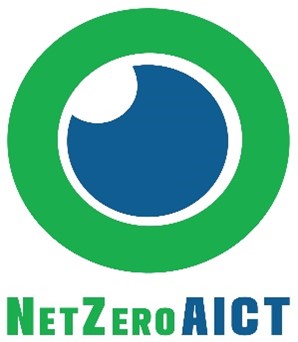
NetZeroAICT
NetZero Artificial Intelligence Computerised Tomography
Computerised Tomography (CT) scan is one of the most common medical imaging procedures in healthcare. Each year, 300 million CT scans are performed globally. Of these, around 180M include radiocontrast media (RCM).
Contrast Enhanced CTs (CECT) create a significant environmental impact, namely 42,000 tonnes of single-use packaging, 900 Tonnes of surgical steel (needles), 90,000 tonnes of plastic tubing and 150,000,000 kWh in energy consumption. These generate, on average, 9.2 kg of CO2/ scan. In addition, CECTs generate 200,000 tonnes of iodine contamination in water/yr. This is a recognised form of ‘pharmaceutical pollution’. CECTs may also harm patients: needle insertion, toxicity of iodinated RCMs to kidneys (potentially kidney failure) and allergic reactions, which in some cases can be life-threatening. Healthcare systems are responsible for 4.4% of global CO2 emissions (2 Giga tonnes/yr.). Of this, ~3 Mega tonnes/yr. are generated from CECTs. The EU has declared its NetZero targets by 2050 through the European Green Deal. We showed feasibility that artificial intelligence (AI, deep learning methods) can extract high level information from non-contrast CT scans and synthesise contrast ‘digitally’. This avoids the need to administer RCM for CECTs. We seek to develop and validate 5 uses cases of CT ’Digital Contrast’ during this Horizon award. By implementing ‘Digital Contrast’ for scans globally, we aim to reduce 30% of the CO2e and iodine RCM waste generated from CECTs by 2033.
NetZeroAICT has a grand vision to define a reference framework for scalable development of AI health tools for a future of sustainable health systems. This builds on our prior efforts of AICT consortium, which was established to make CT imaging safer, more efficient, more equitable and more sustainable. NetZeroAICT will accelerate the EU’s trajectory towards NetZero and advance EU’s globally recognized leadership position on healthcare sustainability.
AMIRES was involved in the project’s preparatory phase and negotiations. AMIRES is leading Dissemination and Communication. Supporting the project coordinator in Project Management.
- Partners:
- COLLECTIVE MINDS RADIOLOGY AB, Sweden
- RHINO HEALTHTECH, INC, USA
- Z-VISIE, the Netherlands
- ESCHERCLOUD HOLDING BV, the Netherlands
- UNILABS AB, Sweden
- BETTHERA S.R.O., Czech Republic
- AMIRES S.R.O., Czech Republic
- CENTRE HOSPITALIER UNIVERSITAIRE DE NICE, France
- UNIWERSYTECKI SZPITAL KLINICZNY W OPOLU, Poland
- PANEPISTIMIAKO GENIKO NOSOKOMEIO IRAKLEIOU, Greece
- GASTHUISZUSTERS ANTWERPEN (GZA), Belgium
- AV AZ SINT-JAN BRUGGE-OOSTENDE, Belgium
- THE CHANCELLOR, MASTERS AND SCHOLARS OF THE UNIVERSITY OF OXFORD, UK
- HOSPITAL DAS CLÍNICAS DA FACULDADE DE MEDICINA DE RIBEIRÃO PRETO DA UNIVERSIDADE DE SÃO PAULO OF SÃO PAULO, Brazil
- UNIVERSIDADE FEDERAL FLUMINENSE, Brazil
- AISENTIA LIMITED, UK
- UNITY INSIGHTS LIMITED, UK
- UNIVERSITY OF LEICESTER, UK
- UNIVERSITY OF GLASGOW, UK
- THE UNIVERSITY OF SYDNEY, Australia
This project has received funding from the European Union’s Horizon Europe research and innovation programme under grant agreement No 101136679.